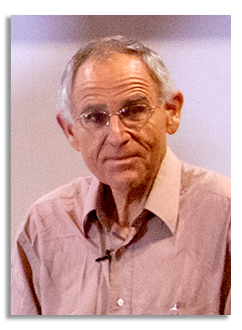
Abstract
Three unconventional, futuristic solar applications being advanced in our lab will be covered:
(1) Solar electricity generation for private, commercial space missions: For decades of government and military satellites, cost has not been an object. But for the new frontier of private commercial space exploration, cost is everything (subject to high reliability). This creates new and distinct constraints for on-board solar electricity generation, where power per unit mass (W/kg) is paramount. The new optics and advanced solar cells we are developing, in collaboration with the United States Air Force, will be presented.
(2) Solar-driven synthesis of novel nano-materials: By concentrating sunlight to intensities thousands of times greater than ambient solar radiation, we have created reactor conditions that are uniquely conducive to the synthesis of singular nano-tubes and closed-cage (fullerene) nano-particles that often possess remarkable electronic, lubricating, catalytic or mechanical properties. The solar route offers the advantages of being safe (no toxic substances are required), far more rapid than alternative methods, and scalable.
(3) Ultra-high algal bioproductivity: Algae have a built-in productivity potential that is hundreds of percent higher than in today’s algae ponds and photo-bioreactors. The key is finding the proper synchronization of (a) light intensity (be it solar or artificial light), (b) illuminated and dark periods for each cycle of pulsed light, and (c) hydrodynamics for moving algae cells into and out of illuminated reactor zones. Our models for achieving these conditions have recently been verified experimentally, demonstrating a factor of 3 increase in photon efficiency. This constitutes a quantum leap from which future algal photo-bioreactors for ultra-high yields of biofuels and pharmaceuticals can be developed.
Click here to see all available video seminars.
Click here to go to the SPREE HOMEPAGE.
Brief Bio
Professor Jeffrey Gordon has worked for the last 41 years at Ben-Gurion University, Department of Solar Energy and Environmental Physics, Blaustein Institutes for Desert Research, Sede Boqer in Israel. He has supervised more than 60 MSc and PhD students and worked on a wide range of topics in solar energy, from thermodynamics and refrigeration, nanomaterial synthesis by solar and other novel optical methods, advanced solar concentrator optics, solar power conversion (thermal, photovoltaic, rectifying antennas), radiometry and illumination optics, algal biotechnology, desalination and the physics and characterization of ultra-efficient solar cells. He has published over 200 articles in peer reviewed journals.
